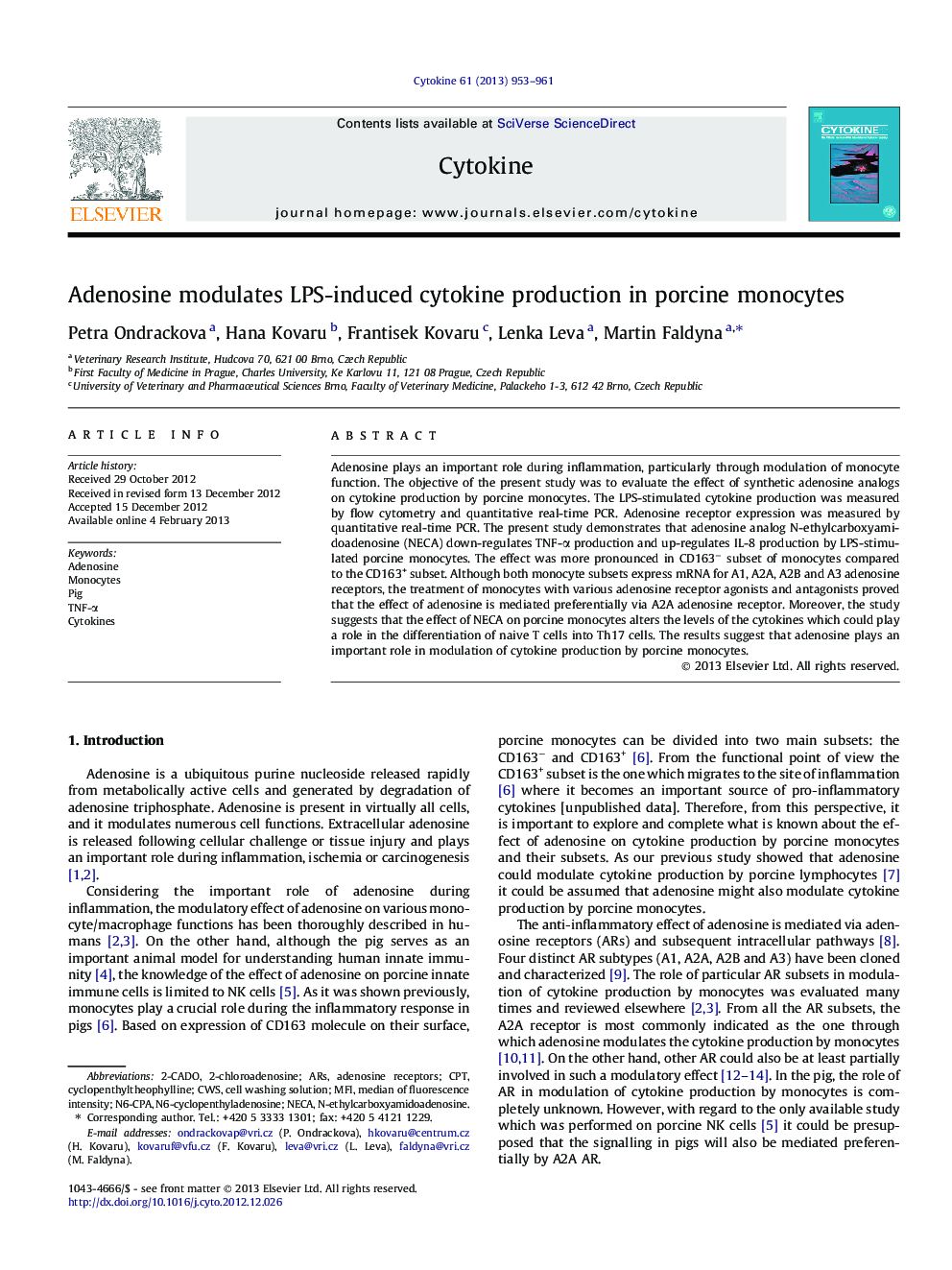| Article ID | Journal | Published Year | Pages | File Type |
|---|---|---|---|---|
| 5897666 | Cytokine | 2013 | 9 Pages |
Adenosine plays an important role during inflammation, particularly through modulation of monocyte function. The objective of the present study was to evaluate the effect of synthetic adenosine analogs on cytokine production by porcine monocytes. The LPS-stimulated cytokine production was measured by flow cytometry and quantitative real-time PCR. Adenosine receptor expression was measured by quantitative real-time PCR. The present study demonstrates that adenosine analog N-ethylcarboxyamidoadenosine (NECA) down-regulates TNF-α production and up-regulates IL-8 production by LPS-stimulated porcine monocytes. The effect was more pronounced in CD163â subset of monocytes compared to the CD163+ subset. Although both monocyte subsets express mRNA for A1, A2A, A2B and A3 adenosine receptors, the treatment of monocytes with various adenosine receptor agonists and antagonists proved that the effect of adenosine is mediated preferentially via A2A adenosine receptor. Moreover, the study suggests that the effect of NECA on porcine monocytes alters the levels of the cytokines which could play a role in the differentiation of naive T cells into Th17 cells. The results suggest that adenosine plays an important role in modulation of cytokine production by porcine monocytes.
⺠Adenosine analogue NECA alters a cytokine production by porcine monocytes. ⺠NECA down-regulates TNF-α production and up-regulates IL-8 production. ⺠NECA alters production of cytokines which are associated with Th17 differentiation. ⺠The effect is more pronounced in the CD163- subset of monocytes. ⺠The effect of adenosine is mediated preferentially via A2A adenosine receptor.
